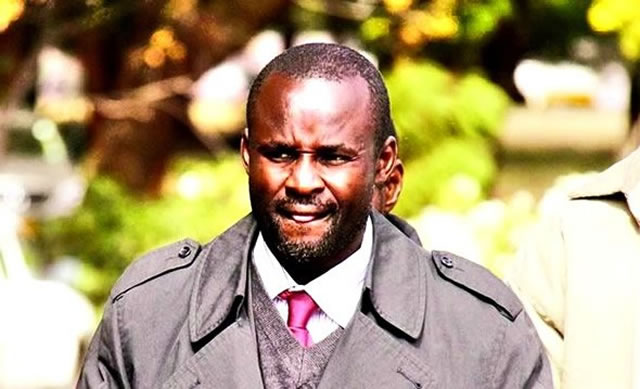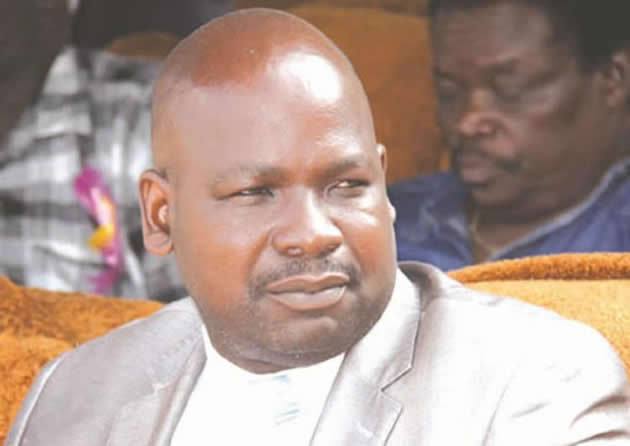Zanu-PF degenerating

 Reason Wafawarova On Thursday
Reason Wafawarova On Thursday
ZANU-PF has ruled Zimbabwe since 1980, starting with a unity government that included second-placed PF-ZAPU after the party won the inaugural election that ushered in national independence, and then going on to mutate into a coalition party with the co-revolutionary movements on December 22, 1987.
From 1980, the party successfully secured an electoral victory every five years up to 2005.
The trend changed when Zanu-PF amended the Constitution to bring forward 2010 scheduled elections to 2008, as the party reasoned that it was more preferable for the country to harmonise the three sets of elections that were being conducted at different times at the time.
Then the country had local government, parliamentary and presidential elections all held separately.
The 2008 harmonised elections almost went the way of the opposition MDC, and there is little doubt an opposition victory could have been secured if the MDC had not entered the race as two splinter groups.
The two splinter parties had a combined total of 110 seats of the contested 210. ZANU-PF survived the scare by entering into a five-year coalition government with the two opposition parties, going on to secure an annihilating victory over its opponents on July 31, 2013.
The MDC led by Professor Welshman Ncube is now virtually deceased, while the Tsvangirai led formation is fast atomising into further splinters, almost certainly destined for oblivion.
ZANU-PF has a long history dating back some 51 years ago, and the party’s inner regime has always been a combination of democracy and centralism.
Liberalism views centralism and democracy as two terms in contradiction, but a closer look at how ZANU-PF has survived might reveal otherwise.
ZANU-PF is a party that uncompromisingly guards its revolutionary boundaries, as defined by the party’s liberation history and legacy.
The party takes watchful care of who enters its boundaries, and it has a ruthless tradition of ensuring that those who enter have a mandatory duty not only to define correctly the party policy, but also to resolutely defend it, or at least be seen to be doing so, genuinely or in pretence.
From its formative years, ZANU-PF has always been a party that thrives on freedom of criticism and intellectual struggle.
It is an irrevocable fact that intellectual struggles and factional conflicts have always been part of this revolutionary movement, and more than once this internal fighting seriously threatened the external support the party received from Zambia and Mozambique during the armed struggle for independence.
Both countries had at one point or another tried to arrest and jail some warring factionists within the liberation movement.
Today’s factions within ZANU-PF are not a new phenomenon. The only new thing about these factions is that they have departed from the traditional intellectual struggles to power struggles seemingly led by simple-minded successionists and their cronies.
ZANU-PF is no doubt a genuine revolutionary party that from the beginning set itself the task of overthrowing a brutal colonial regime that did not envisage black rule in Zimbabwe “in thousand years,” to quote the die-hard colonialist Ian Smith.
ZANU-PF united under its banner the most audacious iconoclasts, fighters, insurgents, mavericks and ideologists from the days of its formation, and as such the party has always lived and survived intellectual conflicts, factional groupings, and indeed factional fighting.
The only thing that has always softened the conflicts and shortened the factional fighting within ZANU-PF is the far-sightedness of the party’s visionary goals, or its preached ideology. In contrast, the short-term goals of the opposition MDC have been the greatest undoing for the party. The far-sighted vision of the MDC leadership has always been the removal of ZANU-PF and its leader Robert Mugabe, after which no one has ever been told what would follow, except the usual nebulous promises of “change” and something Morgan Tsvangirai calls “a new Zimbabwe,” whatever that means.
When ZANU-PF set up its structures across the country in the early eighties, the defining concept behind the Central Committee was seething democratic support from the grassroots.
From this democratic support the Central Committee derived its audacity to make decisions.
The correctness of the leadership was an obvious matter, and at all critical stages of decision making this correctness gave the leadership the priceless moral capital to lead all others.
This old ZANU-PF stands in stark contradiction to this factitious organisation that calls itself ZANU-PF today, with its structures led by unassuming characters like chairman Temba Mliswa from Mashonaland West, an outstanding beneficiary of our media’s lamentable propensity to make foolish people famous.
Some of the utterances attributed to Temba Mliswa in two of his publicised Press conferences do not even rise to the level of nonsense, but he made headlines anyway.
This ZANU-PF of today has some of its “leaders” opting to manipulate intra-party democracy to land positions by electoral fraud.
These “leaders” can make complete changes of policy at a word of command, can freely disregard the party constitution, can openly defend corruption without shame, and they have this haughty attitude towards the rank and file of the party.
The administrative rust in ZANU-PF started to show in the early eighties when the party slowly drifted from its preached socialist policy; but even then, every ZANU-PF leader, not excluding President Robert Mugabe, would have dismissed as a malicious slanderer anyone that would have shown on a screen this vitiated version of ZANU-PF we see today.
People in ZANU-PF ranks are now at the mercy of those in state power, and yet in the past the party regarded those seconded into government as its subordinate appointees, not its tormenting masters.
The extraordinary closeness and merging of the party and state apparatus has not only undermined the democratic and accountability institutions in the country, but also has caused indubitable harm to the freedom and democracy within the party itself.
With increasing factional challenges and difficulties, the concept of democracy gets narrower and narrower each day, and this is why vote buying can now prevail in the glaring view of the party’s First Secretary and his wife, regardless of the First Couple’s publicly expressed dismay and shock. In fact the Politburo seats and endorses the shocking behaviour as legitimate conduct, and life goes on.
The wish to preserve political freedom within ZANU-PF has had to be amended as unpopular leaders manoeuvre to hold on to their posts. Aspiring leaders have been forbidden one after another, often being reminded of the sanctity of seniority by virtue of history and age.
Sometimes aspiring leaders too young to have taken party in the liberation war are told to either produce their war credentials or disappear from the political scene.
People taking these appalling measures obviously know that their behaviour is in conflict with both the liberation legacy and the general spirit of democracy, and they therefore do not regard their awful conduct as a matter of principle.
Rather they depict themselves as revolutionary cadres in an episodic act of the party’s defence.
A party as big as ZANU-PF inevitably has to suffer inner disagreements. However, factionalism must not be allowed to threaten state power.
The rhetorical pace from ZANU-PF’s warring factions is getting faster and faster by the day, and increasingly state institutions are getting implicated.
The imperative need to tone down on this divisive rhetoric runs into the fact that the factional antagonists seem to have only the high volume setting onto their amplifiers, as can be seen through the vicious trading of puerile insults via our pliant media.
There is this disturbing disposition that says the Politburo is everything, and the party is nothing.
Stalin tried this theory with the Bolsheviks and its Central Committee in 1922, and that marked the beginning of the end of Bolshevism.
The leaders in today’s ZANU-PF want to strip the vanguard of the party of its grass root powers, yet at the same time this leadership demands from its cadres the old habit of submitting to authorities, or chefs, to borrow the party’s lexicon.
The vanguard of the party used to loyally submit to that old leadership that was guided by political correctness and moral uprightness, and this deluded corrupt leadership of today simply has no moral or decent standing to demand of its followers the same respect granted to yesteryear leaders.
The glory days of democratic centralism within ZANU-PF have been swallowed by this new monster we can call elitist centralism, and this is why a lone Politburo member can single handedly stray to the provinces and districts to reverse popular decisions with a straight face, or can willy nilly impose leaders of his or her choice upon all others with the confidence of a magistrate.
Today the chief merit of a party cadre in ZANU-PF has become obedience, and blind loyalty has been elevated to a virtue. The revolutionist has been replaced with bootlickers and backscratchers, and at the rate the party is going there is a real risk of the revolutionary party degenerating into a reactionary movement grounded on a stand for nothing policy.
Just like Stalin and his factional rivals first fought bitterly over the succession of Lenin, ZANU-PF has its Stalin alike fighting factional rivals in what apparently looks like succession politics.
Efforts by all protagonists to endear themselves to the leader are there for all to see, and when succession day comes, whenever that is, and whatever the circumstances, we are likely to see factional struggles for the heritage of President Mugabe, just like the Bolsheviks did after the death of Lenin.
It is important for ZANU-PF to have an inner look of itself and to consider its ways, as I believe that the mediocrity of the party’s leadership must be a matter of national concern. Such narrow-minded people now run the party that national programmes get relegated to the periphery while party internal struggles are elevated to national prominence. The sad joke must somehow come to an end.
Zimbabwe we are one and together we will overcome. It is homeland or death!
- Reason Wafawarova is a political writer based in SYDNEY, Australia.









Comments